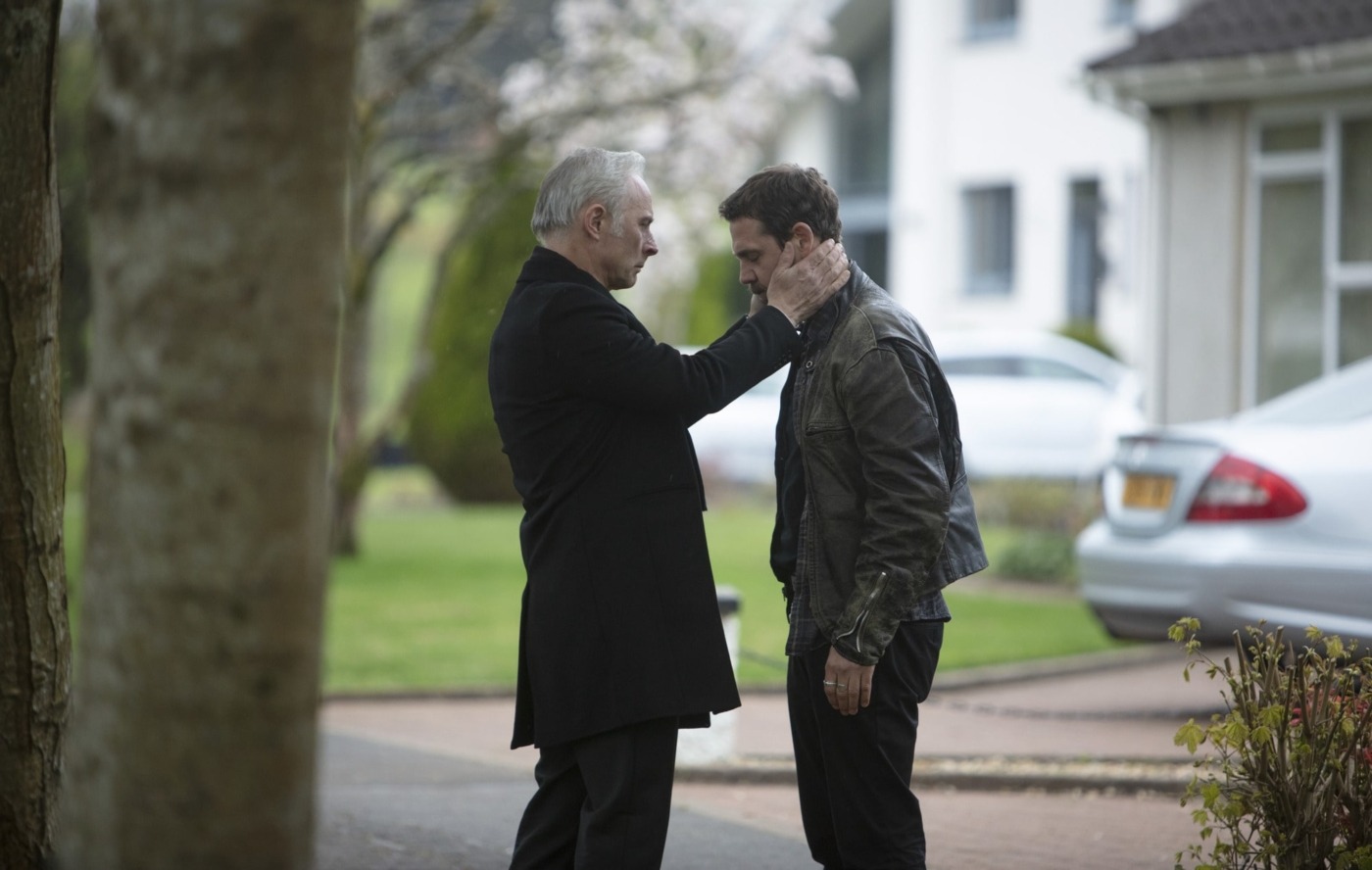Guilt Episode Four review
It was really a fluke that I decided to take a chance on Guilt – I saw it in the TV guide, and thought the premise seemed interesting. I never realised that it would become essential viewing, and a contender for one of the best shows of the year. Our fourth and final episode ends as we all expected that it may, but that doesn’t make it any less gripping, and it thrives on one last powerhouse performance from Mark Bonnar.
As the situation spirals, Max is desperately trying to find his way out, balancing his brother’s desire to confess and live with Angie with the threat of Roy (Bill Paterson) and his encircling gang. Can he escape with his life and his dignity, or will circumstances finally get the better of him? Meanwhile, Jake and Angie both face the future and decide to reveal their secrets, and Sheila is worried that the police may figure out the truth about her plot with Angie.
Bonnar adeptly conveys a feeling of a man teetering on the edge of fury, trying to stay one step ahead as he realises he is increasingly falling behind
Playing Max, this is Bonnar’s episode (and, if we’re honest, it has really been his series). His assured cockiness has taken a number of blows throughout the series, and his loss of control here is palpable – Bonnar adeptly conveys a feeling of a man teetering on the edge of fury, trying to stay one step ahead as he realises he is increasingly falling behind. There are two scenes in this episode that I thought were excellent – he confronts Roy (the ever-menacing Paterson) in his office, and is faced with an offer he knows he can’t refuse, yet can’t bring himself to accept. He is at his most terrifying as he faces Sheila in her home, deducing what she did to Walter and furiously trying to find himself a way out. If you were in any doubts about the moral character and desperation of Max, this scene would set you straight.
The acting, though, is strong across all of the cast – both Sives and Bradley shine as a (sort-of) couple carrying their own guilt, and their confessions and reactions feel genuine. We’ve been building to this, and it doesn’t let you down. And, working with Kenny (Emun Elliot, who has grown from a drunken mess to a confident detective), they begin to realise that maybe Max has been playing them. Even smaller roles, like the corrupt cop Cameron (Noof McEwan), feel like well-rounded characters, a testament to the actors. My only issue (as it has been all series) is Claire’s lesbian storyline – I’d hoped that it wouldn’t be simply as another stick with which to beat Max and, despite some efforts to include it in the wider narrative, that’s exactly what it ended up as.
This always remained the tale of two brothers who did a bad thing, and that focus meant the show never lost sight of what it was doing
Guilt ends where we always knew that it must, but never in a way that felt predictable; half the enjoyment of this series is in the journey we’ve taken. The drama has never disappointed, Forsyth managed to slip in a number of classic lines, and it has always placed its characters at its heart. As the scope expanded, this always remained the tale of two brothers who did a bad thing, and that focus meant the show never lost sight of what it was doing. This fourth episode does what we all expected but never predicted, making it a strong conclusion to a strong run.
So, a little round-up on the series: even though the show never lived up to the full black-comedy promise of its opener, Guilt has still proven to be absolutely essential TV viewing. It has been strongly acted across the board and packed full of fantastic writing by Neil Forsyth. It seems bizarre to me that the BBC sent it to a graveyard slot when it should have been singing its praises. Make sure to catch up on it while you can, and you won’t be disappointed.
Catch up with Guilt on BBC iPlayer.
Read the rest of Reece’s reviews for Guilt: Episode 1, Episode 2, Episode 3.

Comments (1)
I watched both seasons in a couple days. I really did like it.The end was still a little cryptic and I had to come to the conclusion what the relationships were because it was not exactly pointed out in a straightforward manner. It was clever, though, how the story was mostly revealed and the conclusion left up to the viewer.